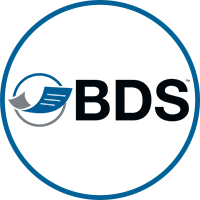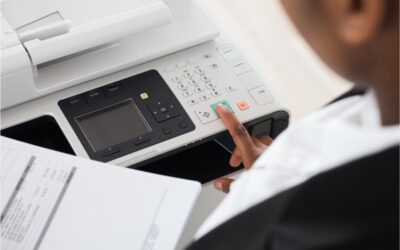Small businesses need efficient and cost-effective commercial printers, which are crucial to success. Choosing the right printer for your small business is not just equipment but also an investment in efficiency and success.
This article explores the benefits of investing in a commercial printer for small businesses. It also explores how commercial MFPs can streamline operations, reduce costs, and save employee time.
How Do Commercial Printers Help Small Businesses?
- Increased Productivity and Efficiency:
High-volume printing and tight deadlines are common problems for small businesses. A commercial multifunction printer can easily handle large quantities of prints, ensuring your business can meet demand. Increased efficiency can lead to higher productivity and improved workflow. - Cost Savings in the Long Run:
While the initial investment in a commercial office printer may seem significant, the long-term cost savings are substantial.- Eliminating Outsourcing Fees: In-house printing eliminates outsourcing fees, saving money.
- Bulk Printing Cost Efficiency: Businesses can use economies of scale by printing in larger quantities, reducing printed page costs.
- Flexibility in Print Runs: In-house commercial printers can print small or large quantities based on immediate needs. This prevents overcommitting to large print runs and minimizes excess inventory costs.
- Customization without Added Costs: In-house printing enables businesses to customize printed materials without additional costs.
- Control Over Printing Processes: This includes choosing print quality, paper types, and finishes without relying on external vendors. This control can lead to cost efficiencies and better alignment with business preferences.
- Reduced Waste: In-house printing allows businesses to print materials on-demand, reducing overordering and minimizing waste.
- Versatility in Printing Options:
Commercial printers offer various printing options, including legal, letter, and up to ledger size. This versatility allows small businesses to handle diverse printing needs without multiple devices. Whether color, double-sided, or specialty finishes, a commercial printer provides the flexibility required for various tasks. - Control and Security:
Printing sensitive documents externally can pose security risks. With a commercial printer in-house, you have complete control over the printing process, ensuring the confidentiality and security of business information. This is particularly critical in industries that deal with sensitive client data or proprietary information. - Adaptability to Changing Business Needs: Small businesses are dynamic, and their printing needs may evolve. Commercial printers adapt to changing requirements, making them a scalable solution. Whether your business expands its product line, changes marketing strategies, or enters new markets, a commercial printer can accommodate these shifts seamlessly.
What is the Best Commercial Printer for Small Businesses?
A small business must consider several factors when choosing a printer to ensure that the printer meets its specific requirements and needs. You can use this guide to guide you through the process:
- Assess Printing Needs:
Understand your business’ printing requirements. Consider the volume of printing, the types of documents you produce, and any specific features needed (color printing, duplex printing, large format, etc.). - Determine a Budget:
Set a budget for a commercial printer. While the initial purchase cost is significant, consider the total cost of ownership, including consumables (ink or toner), maintenance, and potential repairs. Ensure that the chosen printer aligns with your budget constraints. - Evaluate Print Speed and Volume:
Match the printer’s speed and volume capabilities to your business’s demands. If your business requires high-volume printing, opt for a printer with faster printing speeds and larger paper capacity. Consider the monthly duty cycle to ensure it can handle your workload. - Consider Print Quality:
Assess print quality based on your business’s needs. Choose a printer with high resolution and color capabilities for businesses focused on graphics and marketing materials. Request sample prints or demonstrations to verify print quality. - Check Paper Handling Options:
Ensure that the printer can handle a variety of paper sizes, types, and weights. Consider your specific needs, whether standard letter-sized prints, envelopes, or larger formats for marketing materials. Versatile paper handling options enhance printer utility. - Review Connectivity Features:
Look for printers with seamless integration capabilities. Consider features like wireless connectivity, mobile printing options, and cloud compatibility. Easy connectivity enhances flexibility and convenience in your printing setup. - Assess Security Features:
Prioritize printers with robust security features. Look for secure printing, user authentication, and encryption protocols. Safeguarding sensitive business information is crucial, especially in industries with privacy and confidentiality concerns. - Evaluate Ease of Use:
A user-friendly interface is essential for smooth daily operations. Look for printers with intuitive controls, touchscreen displays, and easy setup processes. An easy-to-use printer reduces the staff learning curve and minimizes disruptions. - Explore Maintenance and Support: Understand the printer’s maintenance requirements, including the availability and cost of consumables. Inquire about the manufacturer or supplier’s customer support level. Quick and efficient support can resolve issues promptly.
Is a Commercial Printer Beneficial to your Business?
Many small businesses across a variety of industries can benefit from commercial printers. In these industries, commercial printers show their versatility and how they can be tailored to meet the unique printing requirements of small businesses in different sectors.
Architectural Firms:
Architectural firms often print large-format blueprints, schematics, and project presentations. Commercial printers with wide-format capabilities are crucial for detailed and precise architectural prints.
Consulting Firms:
Consulting firms can benefit from commercial printers for reports, proposals, and client deliverables. The ability to print professional documents in-house enhances the consulting firm’s image and credibility.
Education Centers:
Educational institutions, tutoring centers, and training facilities can use commercial printers to produce teaching materials, worksheets, and promotional materials. Commercial printers support educational printing needs.
Financial Institutions:
Banks, credit unions, and financial advisory firms may use commercial printers for printing financial reports, client statements, and promotional materials. In-house printing ensures the timely and secure distribution of sensitive financial documents.
Law Offices:
Legal documents often require professional printing, especially when presenting materials in court. Commercial printers enable law offices to print confidential documents securely and conveniently in-house.
Marketing Agencies:
Marketing agencies produce large promotional materials, brochures, flyers, and posters. Commercial printers handle diverse printing needs and maintain consistent print quality for impactful marketing collateral.
Medical Practices:
Medical practices benefit from commercial printers for printing patient forms, informational materials, and educational resources. In-house printing ensures privacy and control over healthcare-related documents.
Non-profit Organizations:
Nonprofits can use commercial printers for fundraising materials, informational brochures, and event signage. In-house printing allows them to control costs and respond quickly to changing needs.
Real Estate Agencies:
The commercial printing industry helps real estate agencies produce high-quality house agreement documents, property brochures, and flyers. Real estate professionals benefit from in-house printing of professional-looking materials.
Technology Startups:
Technology startups can benefit from commercial printers for marketing, product documentation, and presentation materials. In-house printing supports startup environments’ dynamic and fast-paced nature.
New England Print Partner
As an authorized reseller of leading brands such as Kyocera, Konica Minolta, Canon, Xerox, and Ricoh and a diverse range of other commercial printer (MFP) manufacturers, we pride ourselves on delivering top-notch office technology solutions. Our mission is to help you acquire printers that excel in quality, speed, convenience, and reliability.
Our extensive selection of printers caters to all your office’s printing and copying requirements. These printers have advanced features, including copy, scan, print, and fax capabilities. This ensures a comprehensive solution to your document management needs.






